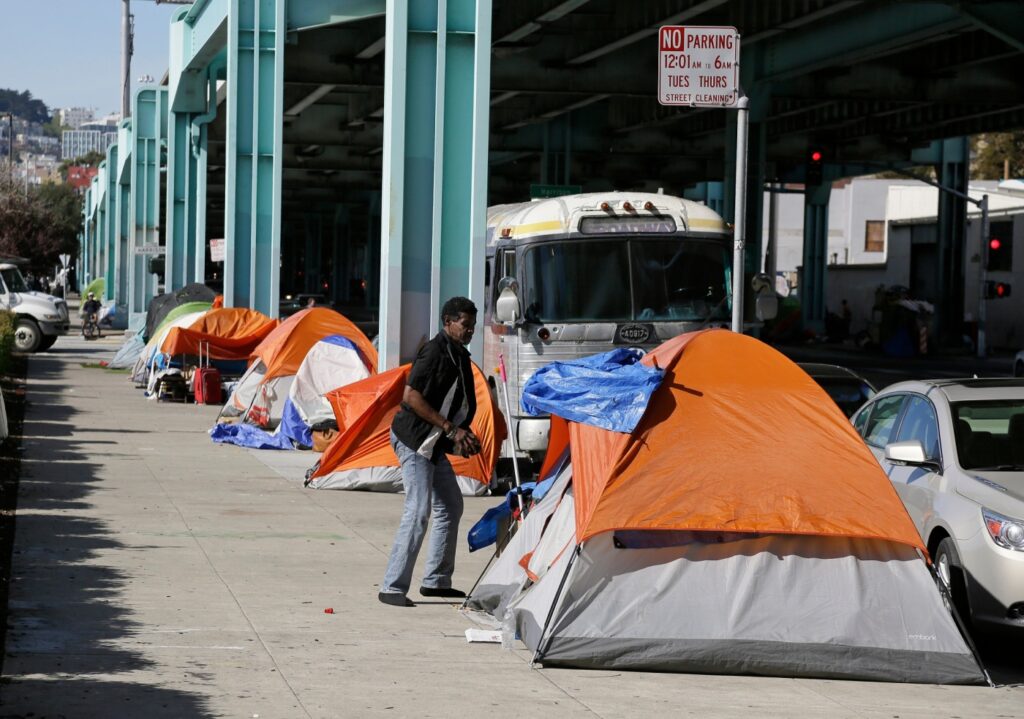
It may be tempting to make too much of what happened Tuesday in California’s two most prominent cities, San Francisco and Los Angeles.
Right-wing media are screaming that the overwhelming recall of San Francisco’s uber-progressive district attorney, Chesa Boudin, and businessman Rick Caruso’s top finish in a field of 12 candidates for mayor bodes well for a Republican comeback in this deep blue state.
That’s not going to happen.
However, it’s also tempting to make too little of Tuesday’s voting patterns in those two cities. Progressives rationalize Boudin’s ouster and Caruso’s strong finish as attempts by the Trumpian right to seize control. In fact Boudin tried, and failed, to make that case to his city’s voters.
Rather, both outcomes reflect legitimate concerns by voters, including those who consider themselves to be left-of-center Democrats, that the quality of life in both cities has deteriorated and that their elected leaders have failed to recognize and confront that fact.
Deterioration is especially stark in San Francisco with rampant drug use that is taking a heavy toll on human life, squalid camps of the homeless dominating city sidewalks and a wave of burglaries and smash-and-grab robberies that goes unpunished.
Writer Nellie Bowles vividly captures the San Francisco crisis and why ordinarily progressive San Franciscans became disgusted in a lengthy article that Atlantic magazine published today.
“They did it because (Boudin) didn’t seem to care that he was making the citizens of our city miserable in service of an ideology that made sense everywhere but in reality,” Bowles wrote. “It’s not just about Boudin, though. There is a sense that, on everything from housing to schools, San Francisco has lost the plot — that progressive leaders here have been LARPing left-wing values instead of working to create a livable city. And many San Franciscans have had enough.”
Bowles noted that Boudin’s recall was foretold by the recall of San Francisco school board members who were preoccupied with symbolic acts of political correctness, such as changing the names on school buildings while ignoring the effects of school closures due to the COVID-19 pandemic.
“I used to tell myself that San Francisco’s politics were wacky but the city was trying — really trying — to be good,” she wrote. “But the reality is that with the smartest minds and so much money and the very best of intentions, San Francisco became a cruel city. It became so dogmatically progressive that maintaining the purity of the politics required accepting — or at least ignoring — devastating results.”
Boudin himself came close to acknowledging why he lost, albeit with a tinge of rationalization, telling the San Francisco Chronicle, “Voters were not given an opportunity to choose between criminal justice reform and something else. They were given an opportunity to voice their frustrations and their outrage and they took that opportunity.”
What about Los Angeles?
Related Articles
One million Americans are dead of COVID
The fallout of Assembly Bill 5 is a cautionary tale the nation must heed
Summit of (some of) the Americas is here
Newsom (probably) can’t lose this November
Chesa Boudin’s recall and the future of criminal justice reform
It has suffered from the same chronic problems that plague San Francisco and a political leadership that has been equally ineffective in dealing with them. Caruso, a very wealthy shopping center developer, tapped into widespread frustration, particularly about crime, in a deluge of self-financed media ads.
Los Angeles’ notoriously low voter turnout also helped Caruso garner more than 40% of Tuesday’s vote, topping Congresswoman Karen Bass, the candidate of the city’s Democratic leadership, by several points.
However, with neither getting a majority, they are headed for a runoff in the November election, when turnout will be higher. That will be a truer test of whether Angelenos are ready for the change that Republican-turned-Democrat Caruso promises but Bass and her supporters shouldn’t ignore the quality-of-life backlash.
CalMatters is a public interest journalism venture committed to explaining how California’s state Capitol works and why it matters. For more stories by Dan Walters, go to calmatters.org/commentary.
